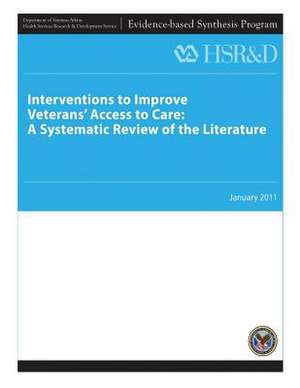Interventions to Improve Veterans' Access to Care
Autor U. S. Department of Veterans Affairs, Health Services Research &. Deve Serviceen Limba Engleză Paperback
Preț: 90.70 lei
Preț vechi: 95.48 lei
-5% Nou
Puncte Express: 136
Preț estimativ în valută:
17.36€ • 18.05$ • 14.33£
17.36€ • 18.05$ • 14.33£
Carte disponibilă
Livrare economică 24 martie-07 aprilie
Preluare comenzi: 021 569.72.76
Specificații
ISBN-13: 9781490364001
ISBN-10: 1490364005
Pagini: 52
Dimensiuni: 216 x 280 x 3 mm
Greutate: 0.15 kg
Editura: CREATESPACE
ISBN-10: 1490364005
Pagini: 52
Dimensiuni: 216 x 280 x 3 mm
Greutate: 0.15 kg
Editura: CREATESPACE
